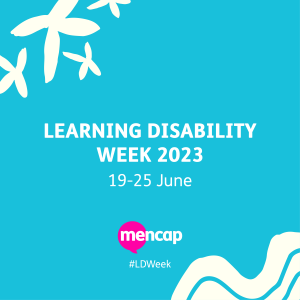
Since April last year, Cumbria, Northumberland, Tyne and Wear NHS Foundation Trust (CNTW) has delivered training on learning disability to more than 900 staff.
Justyna Walecka-Bowery, Learning Disability and Autism Lead Trainer at CNTW, explained, “The new Health and Care Act 2022 requires that all health and social care staff must receive training on learning disability.
“We really welcomed this, and had already been developing a training package for all our staff before this legislation came in.
“CNTW provides specialist services for people with a learning disability. So we have many specialist learning disability nurses across the organisation.
“But the majority of our colleagues, especially those who don’t work in clinical roles – such as staff on reception desks – don’t have any formal training about what a learning disability is, and how to communicate with and support people.
“That’s why this training is really important. Our non-clinical and non-specialist staff are still likely to meet people with a learning disability quite often. By raising awareness, we can improve the experiences that people with a learning disability have with our services.”
The sessions are also an important chance for staff who have had training on learning disability in the past to refresh this. They can gain more up-to-date knowledge, and perhaps a different perspective.
“Even staff who’ve worked in learning disability services for 20+ years have told us they’ve got something out of the training.
“Many of them have found the topic of health inequalities particularly eye-opening.” (On average, people with a learning disability have worse health than people without a learning disability. They are also more likely to experience some number of health conditions. You’ll find more details on Mencap’s website.)
The current training has been developed alongside people with a learning disability and their carers. “We involved Sunderland People First. They are a Community Interest Company which focuses on improving the lives of people with a learning disability and autistic people,” Justyna adds.
“They have now started to deliver the training to our staff. People with a learning disability play a key role in the training, sharing their own experiences. That helps staff to gain a much better understanding. Many people have said they’ve found this the most valuable part of the training sessions.”
The training session covers topics including how to help people overcome health inequalities and barriers; communication; trauma and learning disability; hate crime and ‘mate crime’; reasonable adjustments; and involving people’s family and/or carers.
Over 900 CNTW staff have already received this training, calling it “amazing”, “eye-opening”, “insightful”, and saying it is “so valuable to hear about lived experiences.” During Learning Disability Week from 19-25 June, CNTW are encouraging all of their to sign up to training sessions.
